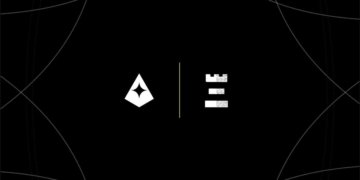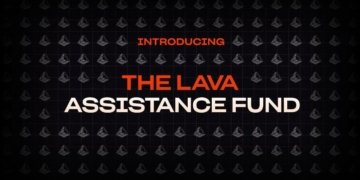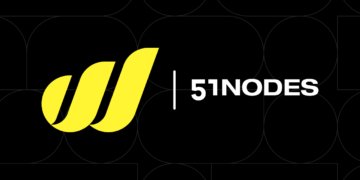
Unichain Launch Sparks Debate Over Uniswap’s Decentralized Governance Commitment
The debut of **Unichain** has ignited a heated discussion within the cryptocurrency community, raising pertinent questions about **Uniswap’s dedication to decentralized governance**. As a groundbreaking new platform, Unichain presents innovative features that could challenge established frameworks, prompting industry leaders and crypto enthusiasts to reassess their views on governance models in decentralized finance (DeFi).
Understanding Unichain: A New Contender in the DeFi Space
Unichain enters the DeFi scene with a robust technological architecture designed to enhance user experience and deliver unprecedented levels of decentralization. Here are some key highlights of Unichain’s offering:
- **Innovative Consensus Mechanism:** Utilizing a novel consensus algorithm, Unichain aims to improve transaction speeds and ensure higher security levels compared to existing platforms.
- **Enhanced User Autonomy:** By providing more control over governance to its users, Unichain seeks to set new standards for participation and transparency within the blockchain domain.
- **Scalable Solutions:** The platform is designed with scalability at its core, making it adaptable to a growing user base without compromising efficiency or security.
The emergence of Unichain not only heralds potential advancements in the DeFi space, but it also raises questions about the viability and effectiveness of current governance systems.
Uniswap’s Governance Structure: An Evaluation
Uniswap, a frontrunner in decentralized trading platforms, is respected for its pioneering approach and substantial influence on DeFi markets. However, growing scrutiny has emerged regarding its current governance mechanisms. Here are some concerns voiced by critics:
- **Centralization Trends:** Despite its decentralized promise, there have been rising concerns about the accumulation of voting power in the hands of a few large token holders, potentially undermining the democratic decision-making process.
- **Lack of Engagement:** Some community members argue that the governance process is dominated by a select group, leading to the underrepresentation of smaller stakeholders.
- **Opaque Proposals:** Critics point out that the transparency in how governance proposals are designed and presented can be lacking, which might alienate the broader community.
With Unichain bringing fresh ideas to the table, it’s crucial to investigate whether the concerns surrounding Uniswap warrant consideration for reforms in its governance model.
Comparing Unichain and Uniswap: Governance and Beyond
The debate over Uniswap’s governance is emblematic of larger discussions on democratic participation in decentralized ecosystems. Here’s a comparison between the governance attributes of Unichain and Uniswap:
User Participation
– **Uniswap:** Traditionally, governance in Uniswap has been constrained by the concentration of tokens among major investors, potentially sidelining smaller stakeholders.
– **Unichain:** In contrast, Unichain emphasizes broader user engagement, with mechanisms designed to include various levels of participants in decision-making processes.
Transparency
– **Uniswap:** While it is a pioneer, Uniswap has faced criticism on the transparency of its proposal processes and decisions, highlighting the need for clearer communication.
– **Unichain:** By prioritizing transparency, Unichain aims to build trust through accessible and open governance systems that invite comprehensive community input.
Innovative Practices
– **Uniswap:** As an established platform, Uniswap’s ability to swiftly adopt innovative practices can be sometimes hindered by its scale and existing procedures.
– **Unichain:** With a fresh slate, Unichain is poised to integrate cutting-edge practices that cater to the evolving needs of DeFi communities.
The Implications for DeFi Ecosystems
The emergence of Unichain and its commitment to a more decentralized governance model is stirring dialogue on the sustainability and effectiveness of existing systems. Here are some potential implications:
- **Promoting Accountability:** With increased focus on user participation and transparency, Unichain could push incumbent platforms to re-evaluate and enhance their governance structures.
- **Stimulating Innovation:** By challenging existing norms, Unichain encourages other platforms to innovate, evolving the DeFi ecosystem into a more dynamic landscape.
- **Computational Efficiency:** The implementation of alternative consensus mechanisms could lead to higher computational efficiency, a benefit that other platforms might consider adopting.
These discussions underscore the essential components that should be preserved and enhanced as the cryptocurrency sector matures. Decentralization and governance are not static; they need continuous effort and adaptation to remain effective.
Conclusion: A Call for Reflection and Action
The discourse sparked by the Unichain launch serves as a crucial reminder that **decentralized governance** is a journey rather than a destination. As the cryptocurrency industry evolves, platforms like Uniswap must be willing to **critically evaluate** and potentially revamp their governance models to prioritize decentralization, inclusivity, and transparency.
By fostering a culture of reflection and openness to change, the DeFi space can embrace innovations that enhance user trust and broaden participation. Unichain’s entry might well serve as a catalyst for such an evolution, challenging long-standing assumptions and encouraging a reimagining of governance in the decentralized world.
“`


















